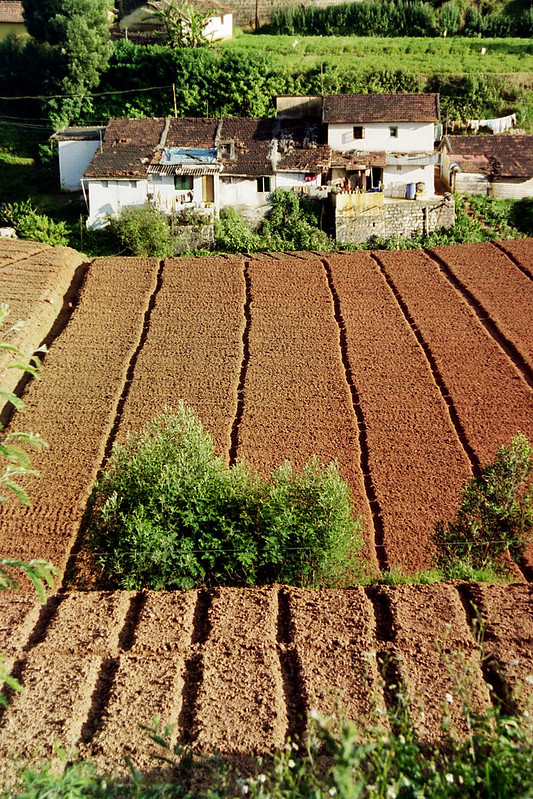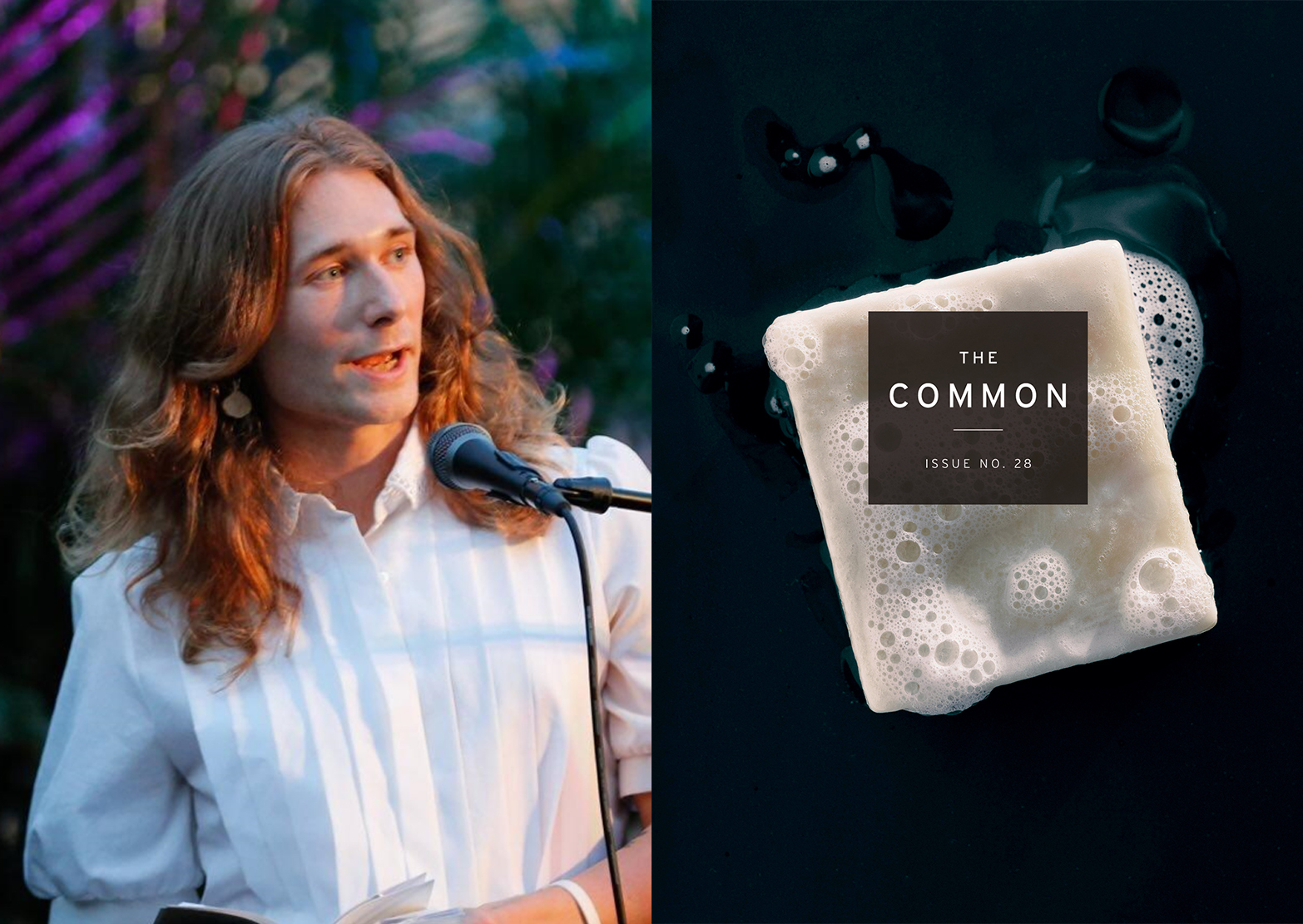This month, we are featuring a collaboration between poet Tina Cane and visual artist Esther Solondz, in response to Elena Ferrante’s fiction. Their work in full will be featured in the book, Dear Elena: Letters for Elena Ferrante from Skillman Avenue Press in November.
Letter for Elena Ferrante: Cosa Nostra
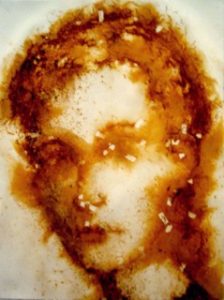
Our thing is the story a 23-day affair or an affair at 23
summer on an island or lust in a closet everything entirely
made up from two halves of not enough the geometry of love
makes a tenuous equation any way you write it I will read it
as confidant and friend for what is friendship if not a story
we agree to share what is family country or faith
when the truth is unfair we can tell it slant call it our thing
Yours,
Letter for Elena Ferrante: Flirt
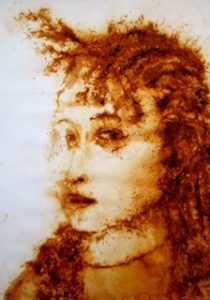
Not on Twitter not my lover not named or made famous for nothing
but for words you won’t claim same as my origins traced to a single kiss
with which you lead me through a series of rooms murky in Neapolitan light
like water where lust like drowning is a baptism and flesh rubbed raw
from factory work is how meat flirts with death and the floor’s
all wet with a red we conspire to call velvet
Forever yours,
Letter for Elena Ferrante: Falcons
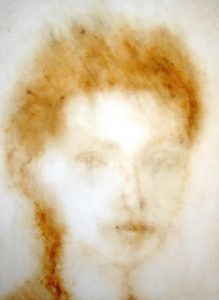
As the dream expands as only a dream can spontaneous and unaccountable
we could covet the neighbor or kill the dog break dishes in our minds
either way we are flying for a craft wants nothing but to work
released from speech complete to unfurl its days in transition
and silence as a falcon would gliding majestically
just out of frame beheld but not beholden
Truly,
Letter for Elena Ferrante: Frenemy
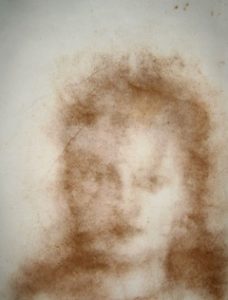
Instruct me on the workings of love dear friend for all its brilliant parroting
the ode is a one-way street and I am not one to suffer unanswered letters
with grace or the textbook text reply of yep with no flicker of rage
to write is to want and I have shed the old haunts with some regret
my people my neighbors the cities and streets that raised me pushed me
to write words to sew them into my skirt as a talisman for clarity
it’s a fictional need but I have grappled like you for my tools
true and good as a cobbler’s daughter hammering in the dark
Always,
Tina Cane and Esther Solondz, Poems and Images
We’ve had countless conversations over the years about everything
from winter’s unrelenting snow to the state of the world, the state
of our children, my pregnancies, her hamstrings, my aching shoulder.
Sometimes we speak with haste as she heads to her art studio in Pawtucket
or I rush off to teach in Central Falls. Invariably, we are in a state of undress
with our hair wet. Always, we are in the locker room at the East Side Y.Last winter, Esther and I finally took our conversation outside.
Or rather, it took us, for we had discovered a shared love of the Italian writer
Elena Ferrante. Once we started talking, we didn’t want to stop. Standing
by our parked cars, holding our pool bags, our noses faintly marked by goggles,
we spoke of the Neapolitan novels, Ferrante’s women and the visceral response
they evoked in us. I mentioned that, having finished reading Ferrante’s entire oeuvre,
I had begun writing epistolary poems for her as a means to fill the void.The way I remember it, we were talking fast. But that might have just been me,
for Esther has a composed, deliberate quality about her that I have noticed,
even as she swims laps in the pool. To consider Esther’s portraits, rendered in rust,
is to witness this quality expressed through process—a process in which she “draws”
faces with iron filings and steel wool, covers the image with gauze, water and salt
and then leaves it to be released by time and exposure to the elements.
Tina Cane was the 2016 recipient for the Fellowship Merit Award in Poetry from theRhode Island State Council on the Arts.
Esther Solondz is the recipient of a National Endowment for the Arts fellowship.


